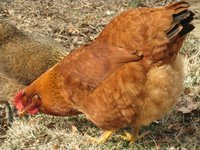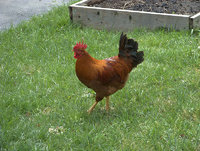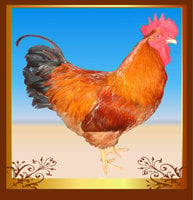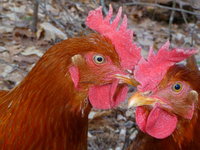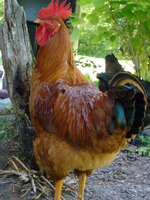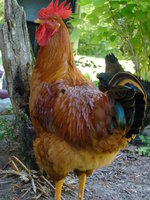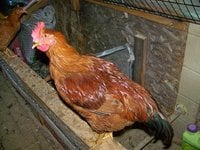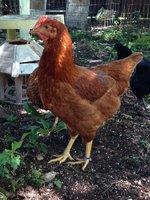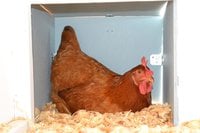General Information
- Breed Purpose
- Dual Purpose
- Comb
- Single
- Broodiness
- Frequent
- Climate Tolerance
- All Climates
- Egg Productivity
- High
- Egg Size
- Large
- Egg Color
- Brown
- Breed Temperament
- Friendly, Easily handled, Bears confinement well, Noisy, Docile
- Breed Colors/Varieties
- Red
- Breed Size
- Large Fowl
- APA/ABA Class
- American
The New Hampshire is an American breed, developed beginning around 1910 in the New England states from the Rhode Island Red breed. The New Hampshire breeders selected for a vigorous dual purpose bird, one that would be early maturing, very fast growing, fast feathering, and producing a good table bird with hens having good egg laying ability. By the 1930’s they had successfully developed the New Hampshire to the extent where it was a popular breed choice for commercial egg production, used as crosses in the commercial broiler industry on the east coast, and were popular entries in the Chicken of Tomorrow contests which led to the development of the modern broiler industry.
It was admitted to the APA in 1935 and are very popular as show birds today. The APA recognizes one color, that being a rich chestnut red with black tail feathers. Birds kept outdoors will often find their red color is prone to fading. They are found in several other colors, including blue and white in other countries.
They are friendly birds with people, usually making good pets, and can be tamed fairly easily. They are good foragers and do well free ranging. They are vigorous and competitive and should be watched that they aren’t overly bossy with gentle breeds. They are quite cold hardy and good winter layers. The hens will go broody and are good mothers.
Though often called New Hampshire Reds, the name of the breed is New Hampshire, with the name New Hampshire Red often being used to identify a hatchery New Hampshire / Rhode Island Red cross.
There is a bantam New Hampshire, though it was developed primarily in the Netherlands.
It was recognized by the APA in 1935.
It is on The Livestock Conservancy's Watch list.
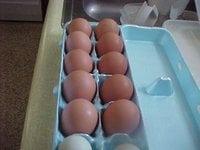
New Hampshire eggs
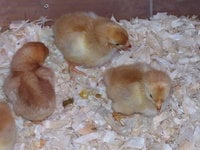
New Hampshire chicks
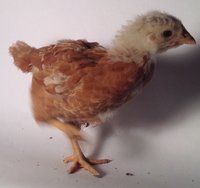
New Hampshire juvenile
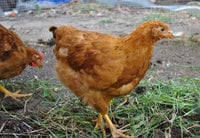
New Hampshire hen (pullet)
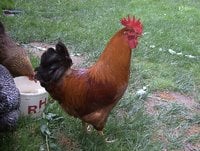
New Hampshire rooster
For more information on this breed and their owners' and breeders' experiences with them, see our breed discussion here: https://www.backyardchickens.com/threads/chicken-breed-focus-new-hampshire.1024180/

